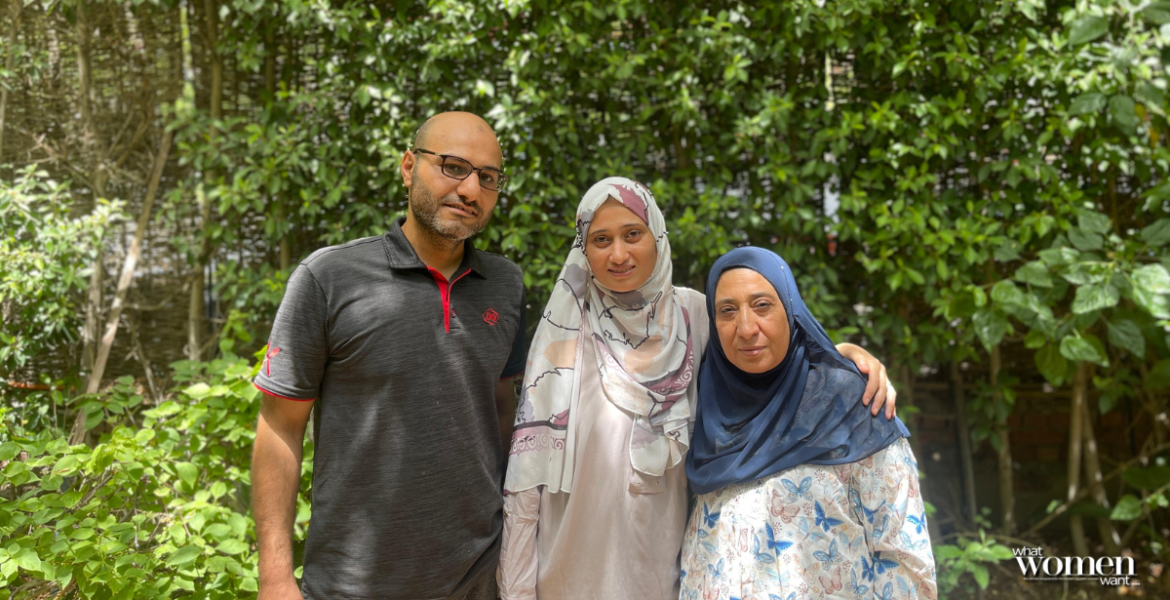In the serene, tree-lined roads of Maadi, Haneen Gaza Kitchen is a culinary gem. It offers more than just a wonderful dining experience. Haneen Gaza Kitchen is a profound journey through the flavors and traditions of Palestine. It stands as a testament to the power of culinary heritage, community resilience, and cultural pride. Through its dedication to authenticity, Haneen Gaza Kitchen has carved out a unique space in the culinary world. It invites all food lovers to explore the flavors of Palestine. A visit to Haneen Gaza Kitchen is a must for anyone in search of authentic Palestinian cuisine. Already, it has captured the hearts and palates of locals and visitors alike.
Culinary Highlights
Haneen, a name full of nostalgia and longing, encapsulates the spirit of its founders-a Palestinian family with roots stretching back to Simsim and Gaza, now flourishing in Cairo. Their journey reflects the resilience of a people whose connection to their homeland transcends borders and hardships. Forced from their homeland, they carried with them not only memories but also generations-old recipes passed down through turbulent times. In every dish crafted at Haneen Gaza Kitchen, there is a deep-seated love for tradition. These dishes are a tribute to the land, its people, and the enduring spirit of resilience.
The menu at Haneen Gaza Kitchen reads like a love letter to Palestinian cuisine. It is a symphony of flavors and textures that captivate the senses and nourish the soul. They offer a range of dishes that cater to everyone. Some of their signature dishes are Musakhan (roast chicken with sumac and caramelized onions), falafel, fresh salads, pickles, and Maftool (hand-rolled, pearl-sized couscous with tender chicken).
A Taste of Tradition
Haneen Gaza Kitchen is a celebration of history, culture, and tradition. Palestinian cuisine highlights the deep connection of its people with their land. Haneen, the founder, boldly stated, “The Palestinian Kitchen is our identity. It showcases and preserves our heritage.” Palestinian Cuisine is easily recognizable with its staples like olive oil, maftoul, maqlouba, and musakhan. Haneen added, “Haneen Gaza Kitchen highlights our culture, traditions, and food.” At Haneen Gaza Kitchen, each dish tells a story—a tale of ancestors cultivating olives, fishermen casting nets into the Mediterranean, and families gathering around tables.
Maqlouba: Heritage and Tradition
Maqlouba, a cherished dish in Palestinian cuisine, transcends its role as a mere meal to become a cultural emblem deeply rooted in tradition and community. It adorns tables during Ramadan, family gatherings, and celebrations. The name Maqlouba, which means “upside-down” in Arabic, aptly describes its preparation: layers of rice, vegetables, and often meat are carefully arranged in a pot, cooked until tender, and then flipped upside-down onto a serving platter. This presentation not only showcases the cook’s skill but also symbolizes the generosity and hospitality ingrained in Palestinian culture. Maqlouba is not just a dish. It is a centerpiece of celebrations and gatherings. Families and friends come together to share its hearty flavors.
Haneen shared the story of how Maqlouba got its name. According to tradition, when Salah El Din liberated the Al-Aqsa Mosque, villagers welcomed him with Maqlouba. Curious, he asked, “What is this food you turn upside down?” They decided to rename it Maqlouba, replacing its original name ‘Batnganya’. Reflecting on history’s full circle, Haneen notes, “Now you can see Palestinians serving Maqlouba upside down all over the Al-Quds Mosque.”
Embracing Tradition Through Cooking Workshops
Haneen Gaza Kitchen also hosts cooking workshops. These workshops not only teach culinary skills but also serve as vibrant cultural experiences. Participants delve into the rich tapestry of Palestinian flavors, learning to prepare dishes like maqlouba and musakhan under the guidance of Haneen and her family. Each workshop becomes a journey through history and tradition, as recipes passed down through families reveal the roots and cultural influences shaping Palestinian cuisine.
These sessions often go beyond cooking techniques, offering insights into the significance of each ingredient and the rituals surrounding meal preparation in Palestinian homes. As participants chop vegetables, blend spices, and savor the aromas filling the kitchen, they not only master recipes but also forge connections with Palestinian heritage. These workshops foster cultural exchange and understanding, celebrating the resilience and identity of Palestinian cuisine while empowering individuals to recreate these flavors in their kitchens worldwide.

